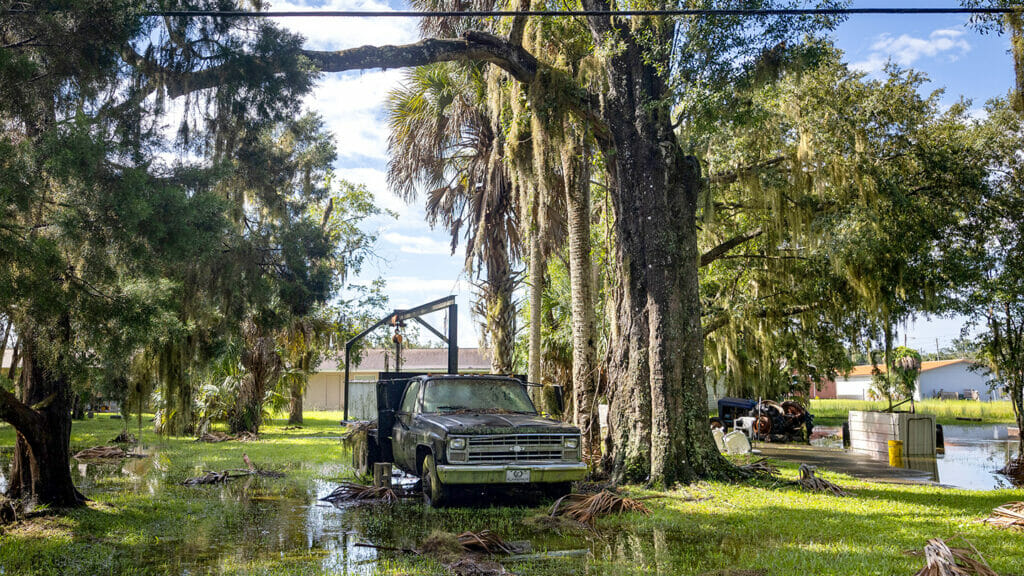

Hurricane Idalia slammed into Florida last week before sweeping into Georgia and South Carolina, flooding roadways and downing power lines. But senior living providers emerged without serious damage or loss.
Idalia made landfall near Keaton Beach as a high-end Category 3 hurricane with 125 mph sustained winds, remaining a hurricane as it crossed into Georgia with top winds at 90 mph, according to the Associated Press.
LeadingAge Florida told McKnight’s Senior Living that its member communities “fared well” through the storm, with no serious exterior community damage or injuries. A few communities sustained property damage, including one community that had its entrance and exit blocked by a large tree, and some residents were evacuated to other communities as a precaution.
“Hurricane Idalia was one of many formidable forces in the last few years that has tested the resilience of our long-term care providers and their unwavering commitment to resident safety,” Communications Director Nick Van Der Linden said.
Idalia knocked out power to 270,000 Georgians last week, including The Veranda at Midtown senior living community and Live Oak Landing in Savannah, which was without power for approximately 24 hours, according to WJCL 22 and WSAV. Georgia Power reported that damage affecting the communities included multiple trees down on overhead lines, wires down and a broken power pole.
SRI Management reported that its South Carolina coastal communities — Indigo Carolina Forest, Magnolia Bridge at Murrells Inlet and New Haven at Little River — were fully operational after suffering a few leaks. The Canopy at Azalea Grove in Valdosta, GA, was running on its natural gas-powered generator until the city was able to get the area back on the power grid. And residents of Sunflower Springs at Homosassa, FL, were back in their community after evacuating to The Canopy at Walden Woods and Village Veranda at Lady Lake.
Westminster Suncoast, a Westminster Communities of Florida continuing care retirement community, reported that it had weathered Hurricane Idalia safety and hosted residents from its sister communities — Westminster Shores, Westminster Manor and Westminster Point Pleasant.
Advent Christian Village in Tallahassee experienced many downed trees but no injuries in the wake of the storm. As of Monday, electricity had been restored to all of the campus, except for the Riverwoods independent living area, according to a Facebook update.
Ahead of the storm, the Florida Health Care Association formally activated its emergency response activities to plan for the potential effects of Hurricane Idalia.
“Over the last several years, powerful hurricanes have provided stark reminders of the importance of preparing for all contingencies,” FHCA CEO Emmett Reed said in a statement. “That’s why our members have been implementing their detailed emergency plans ahead of Hurricane Idalia.”
Those plans included fuel checks and generator preparations, disaster planning, emergency supply restocks, facility hardening, and continuous communication with outside partners and contacts. The Florida Agency for Health Care Administration’s dashboard reported that 100% of assisted living communities and nursing homes had fully implemented permanent generators.


